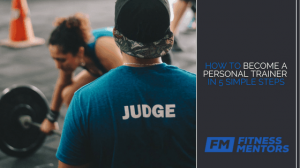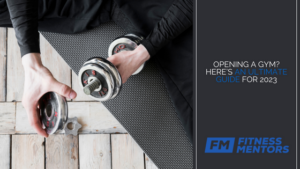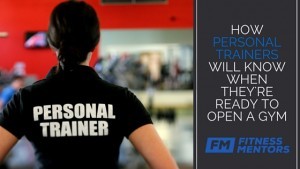2026 Guide To Gym Lingo (50 Terms Defined)
![2026 Guide To Gym Lingo [50 Terms Defined] 1 image1](https://www.fitnessmentors.com/wp-content/uploads/2022/03/image1.png)
There you are at the gym, working up a sweat on the elliptical, when an old co-worker stops by your station and says, “you look like you’ve been cutting!”
You stare back blankly and don’t know whether to thank them or get defensive.
It’s okay, they were complimenting you. But there is a lot of gym lingo, including that one, that might leave you baffled. Whether it’s workout terminology, casual banter, or even clever gym pick-up lines you overhear between sets, knowing the language can save you from that puzzled look on your face.
![2026 Guide To Gym Lingo [50 Terms Defined] 2 circles@2x-1](https://www.fitnessmentors.com/wp-content/uploads/2022/02/circles@2x-1.png)
Fitness Terminology You'll Hear Around The Gym
Let’s start with actual fitness terminology. Not everything said at the gym is slang for something, some of it is legitimate terminology that may sound like slang to you if you don’t know what it means. Here are some examples.
Barbell
A long, metal bar that is weighted on one end. Athletes use barbells for exercises such as squats, deadlifts, and bench presses.
Bench
A piece of equipment used for exercises such as the bench press, in which you lie down and push a weight away from your chest.
Cables
Wires attached to a weight stack that you use for exercises such as the cable row, in which you pull the cables towards you.
Cardio
Cardio is short for cardiovascular, which is the name for the system in your body that includes your heart and blood vessels.
Cardio is considered any type of exercise that raises your heart rate and gets your blood pumping, such as running, biking, or using the elliptical. According to Fitness Mentors’ survey of personal trainers, a rowing machine offers the best cardio workout.
Compound Exercise
An exercise that uses more than one muscle group at a time. For example, a squat is a compound exercise because it uses your glutes, hamstrings, and quadriceps.
Dumbbell
A short, metal bar that is weighted on both ends. Athletes use dumbbells for exercises such as shoulder presses, lateral raises, and bicep curls.
Crop Shop
![2026 Guide To Gym Lingo [50 Terms Defined] 4 image5](https://www.fitnessmentors.com/wp-content/uploads/2022/03/image5.png)
EZ Bar
A barbell with a curved, ergonomic design that is meant to be easier on the wrists. Athletes use EZ Bars for exercises such as preacher curls, skull crushers, and barbell rows.
Form
How you perform an exercise – ensuring that you are using the correct muscles and doing the exercise correctly. Improper form can lead to injuries.
Isolation Exercise
An exercise that uses only one muscle group at a time. For example, a bicep curl is an isolation exercise because it only uses your bicep.
Lat Pulldown
An exercise in which you use a machine to pull a weight down behind your head.
Macros
A macro is short for macronutrient, which is a type of nutrient that your body needs in large amounts. The three macronutrients are carbohydrates, protein, and fat.
Micros
Micros is short for micronutrients, which are a type of nutrient that your body needs in small amounts. These include vitamins, minerals, and antioxidants.
![2026 Guide To Gym Lingo [50 Terms Defined] 5 image4](https://www.fitnessmentors.com/wp-content/uploads/2022/03/image4.png)
Military Press
An exercise in which you press weight above your head.
Personal Trainer
A certified professionalwho helps you to create a fitness routine, provides support and motivation, and can offer nutritional advice. Learn how to become one here.
Plates
Weights that are put on a barbell or dumbbell.
Reps
The number of times you complete an exercise.
Rest
The time you spend not doing an exercise, typically used in between sets. Rest is important because it allows your muscles to recover so you can give your best performance during the next set.
Sets
The number of reps you do of an exercise, followed by the type of rep. For example, “3 sets of 10 reps” means you will do 10 reps of the exercise, take a break, then do 9 more reps, and so on until you’ve completed 3 sets.
Squat
A leg exercise in which you stand with your feet shoulder-width apart and squat down until your thighs are parallel to the ground.
![2026 Guide To Gym Lingo [50 Terms Defined] 6 image6](https://www.fitnessmentors.com/wp-content/uploads/2022/03/image6.png)
Superset
Two exercises done consecutively without rest in between. For example, doing a set of bicep curls followed by a set of tricep extensions without resting in between.
Now Onto The Slang Gym Lingo
Just like any other language, there are words and phrases used in gyms that have specific meanings that were made up somewhere along the way.
Here are some of the most common terms you’ll hear.
AMRAP
As many rounds as possible – a type of workout where you do a certain number of repetitions of an exercise and then move on to the next one, until you’ve done as many rounds as possible.
Beast
A really strong person.
Beast Mode
Going all out during your workout. Pushing yourself to the absolute limit.
Broscience
The unofficial, yet often unquestioned, wisdom of gym-goers. This can include anything from how to eat and exercise to what supplements to take.
![2026 Guide To Gym Lingo [50 Terms Defined] 7 image2](https://www.fitnessmentors.com/wp-content/uploads/2022/03/image2.png)
Bugger
A weight that is too heavy.
Bulking
The process of gaining weight or muscle in order to achieve a certain aesthetic.
Cheat Meal
A meal that is not part of your diet, but that you allow yourself to eat because you’ve been working out hard and eating healthy for a long time.
Cutting
The process of losing weight or body fat in order to achieve a certain aesthetic. So if someone says “you look like you’ve been cutting”, they’re complimenting your toning.
DOMS
Delayed onset muscle soreness – the feeling of fatigue and soreness in your muscles that occurs a day or two after a tough workout.
Donut
A type of weight that is shaped like a donut, used for exercises such as the shoulder press.
Gains
The physical changes you see in your body when you work out and eat healthy, such as muscle mass, definition, and reduced body fat.
Ghost
When you finish a set and there’s nobody left on the gym floor to spot you.
Gym Rat
A person who loves going to the gym and spends a lot of time there.
Lunk
A guy who’s at the gym to show off and doesn’t care about his workout. He’s often loud, disruptive, and obnoxious.
Mirin’
Admiring your own muscles, or admiring someone else’s physique.
Munter
A terrible, dangerous way to do an exercise that usually results in injury.
NPE
Not peeing enough – a common problem for people who are working out hard and drinking lots of water.
Peeled
Having very low body fat, to the point where you can see your muscle definition.
Plank
A core exercise in which you hold your body in a straight line from your head to your heels.
![2026 Guide To Gym Lingo [50 Terms Defined] 8 image7](https://www.fitnessmentors.com/wp-content/uploads/2022/03/image7.png)
Plateau
When you stop seeing results in your fitness journey, despite continuing to work hard. This is often a sign that you need to change up your routine.
Pre-Workout
A supplement that is taken before a workout in order to give you energy and help you perform better.
Pump
The feeling of muscle soreness that is caused by doing a workout that is significantly more challenging than what you are used to.
Pumping Iron
Working out – usually in the gym.
Ripped
Extremely lean and muscular.
Seed
A beginner or someone who is not very strong.
Slam
Dropping a weight onto the ground after you’ve finished using it.
Smash
The feeling you get when you finish a really tough workout.
Spot
Helping someone with a weight they can’t lift themselves or standing near them ready to assist in case they struggle with it.
Swole
Slang for swollen, used to describe someone who has gained muscle mass.
WOD
Workout of the day – the specific workout that the gym is doing that day.
![2026 Guide To Gym Lingo [50 Terms Defined] 9 image3](https://www.fitnessmentors.com/wp-content/uploads/2022/03/image3.png)
There you have it. From A to Z, we’ve covered just about any gym lingo you might hear. If you’re not sure what something means, just ask a gym-goer – they’ll be more than happy to explain.
Remember, the key to avoiding any confusion is to be open-minded and always willing to learn. The more you know about the gym, the better your workouts will be. So get out there and start smashing some weights!
Related to: Fitness Business Names

How to Become a Personal Trainer in 5 Simple Steps

Personal Trainer in 2020

Personal Trainer Salary

Top 5 Exercise Science Careers

To Our Blog

![2026 Guide To Gym Lingo [50 Terms Defined] 10 ISSA-Become-A-Personal-Trainer-01](https://www.fitnessmentors.com/wp-content/uploads/2020/10/ISSA-Become-A-Personal-Trainer-01.jpg)
![2026 Guide To Gym Lingo [50 Terms Defined] 11 NASM-Become-A-Personal-Trainer-01](https://www.fitnessmentors.com/wp-content/uploads/2020/10/NASM-Become-A-Personal-Trainer-01.jpg)
![2026 Guide To Gym Lingo [50 Terms Defined] 12 Fitness-Mentors-CPT-Ad](https://www.fitnessmentors.com/wp-content/uploads/2020/10/Fitness-Mentors-CPT-Ad.jpg)



